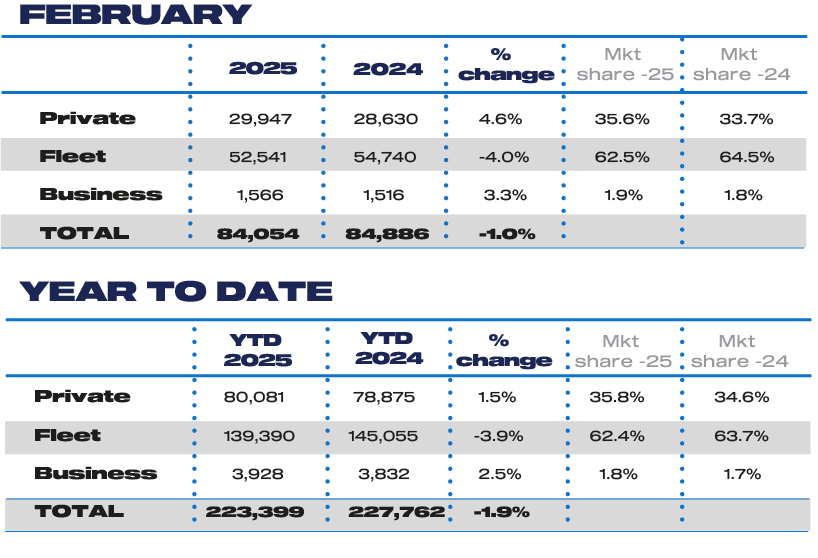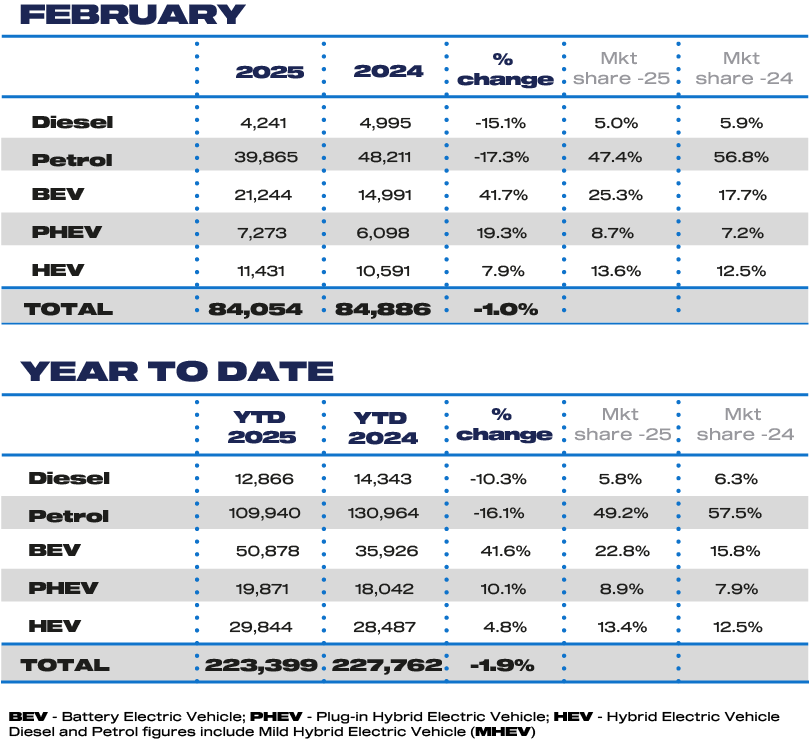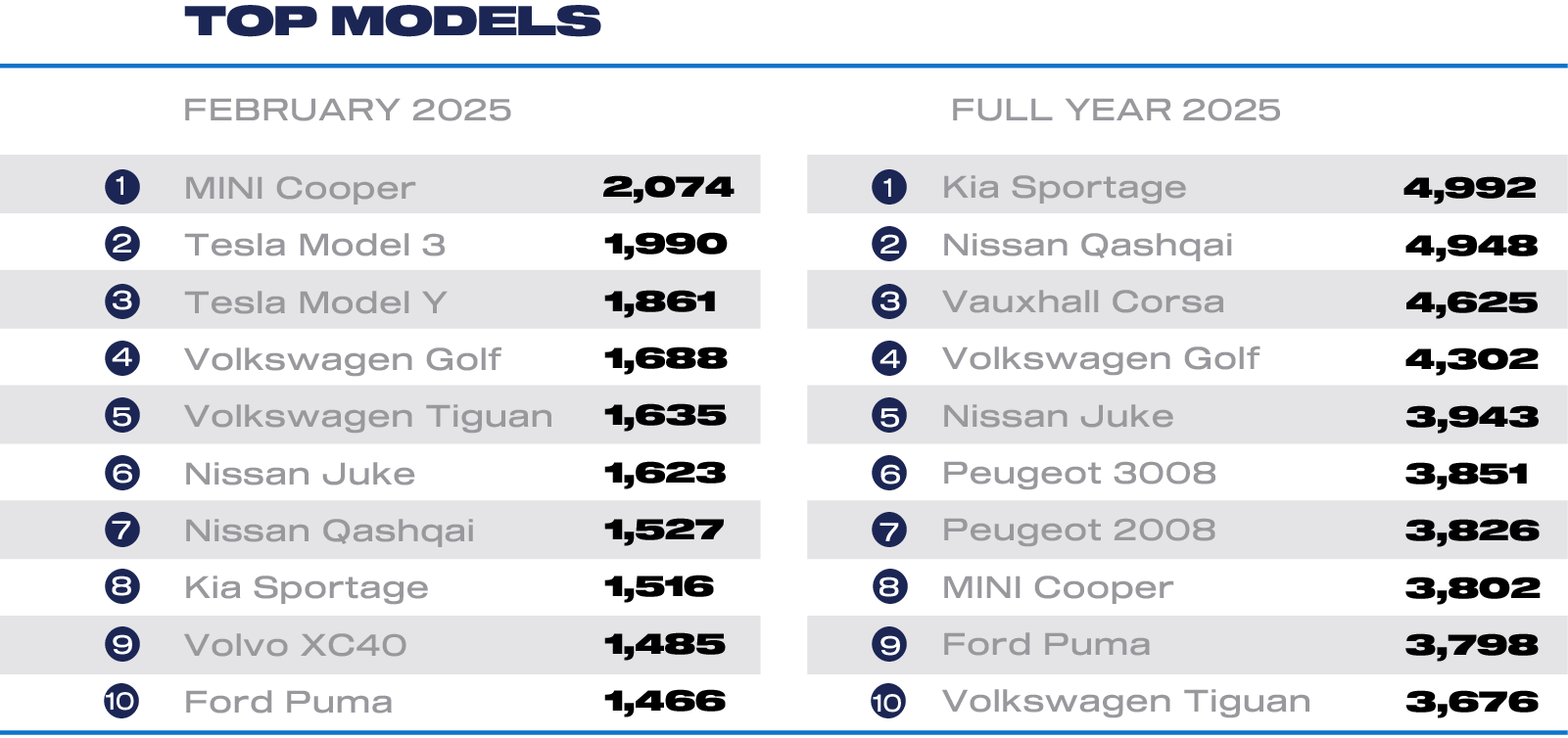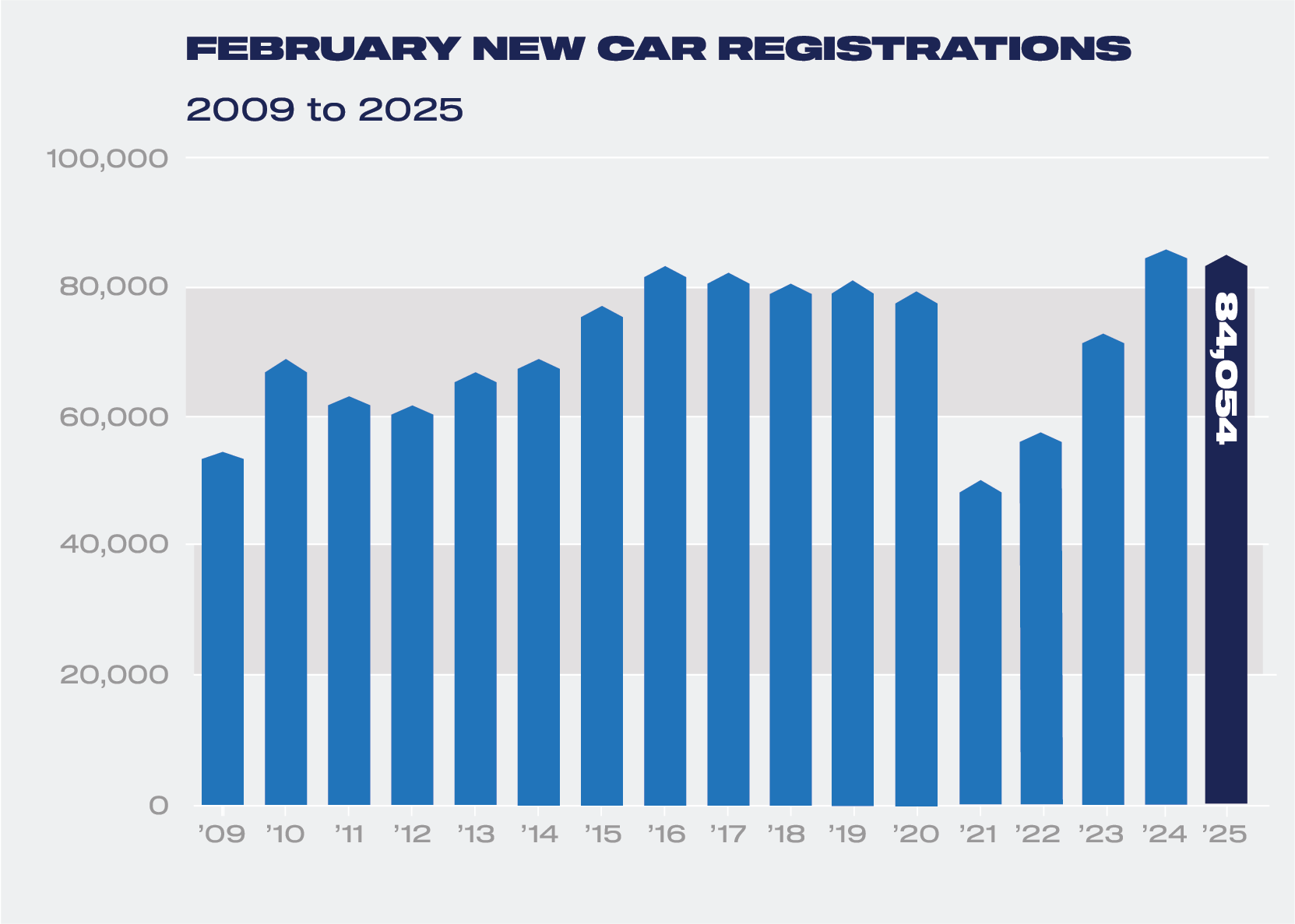The UK new car market fell slightly in February, down -1.0% to
84,054 units, according to the latest figures from the Society of
Motor Manufacturers and Traders (SMMT).
In what is usually the smallest month of the year (accounting for
only around 4% of annual volumes), February was the fifth
consecutive month of decline, with a -4.0% reduction in fleet
registrations – which have driven previous market
growth. Private registrations rose by 4.6% to slightly increase
overall market share to 35.6%, while the much smaller business
sector rose by 3.3%.
Electrified vehicle uptake continued to grow, with plug-in hybrid
vehicles (PHEVs) rising 19.3% and hybrid electric vehicles (HEVs)
up 7.9%. Battery electric vehicle (BEV) registrations
were up by 41.7% to 21,244 units, securing a 25.3% market
share compared with 17.7% a year ago. This dramatic increase
compared with the rest of the market was unsurprising
considering the forthcoming tax changes in April, which will see
many EV models subject to the vehicle excise duty expensive car
supplement (ECS) for the first time. This maintains the positive
trajectory but still falls short of the 28% target for 2025 and,
given February comes ahead of the March numberplate change, it is
always one of the smallest and most volatile months.
Next month is likely to see a further surge in EV uptake, as
buyers capitalise on the new '25 plate and take their last chance
to avoid the punitive ECS which, from 1 April will add £2,125
over six years to the cost of BEVs with a list price above
£40,000.1 Relative to the rest of the market, BEVs are
disproportionately affected as higher production costs meaning
the average BEV retails above the ECS threshold, a threshold
which remains unchanged since its introduction in
2017.2 The introduction of this measure also
risks disincentivising the used market as well as the new,
impeding a faster, fairer transition.
Manufacturers have already underwritten the transition to the
tune of more than £4.5 billion in discounts over the last year
alone – on top of the billions invested in developing and
bringing the vehicles to market. Such industry support is
unsustainable which is why the current ZEV Mandate must arrive at
measures which afford greater market flexibilities, incentivise
private purchases, and both encourage and facilitate a faster
rollout of charging infrastructure.
Mike Hawes, SMMT Chief Executive, said,
“Although February's figures show a subdued overall market, the
good news is that electric car uptake is increasing, albeit at
huge cost to manufacturers in terms of market support. It is
always dangerous, however, to draw conclusions from a single
month, especially one as small and volatile as February. With the
all-important March number plate change now upon us, and tax
changes taking effect in April that will, perversely, dissuade EV
purchases, we expect significant demand for these new products
next month - but, long term, EV consumers need carrots, not ever
more sticks.”
|
|
|
|
|
|

|
|
|
|
|
|
|
|
|
|
|
|

|
|
|
|
|
|
|
|
|
|
|
|

|
|
|
|
|
|
|
|
|
|
|
|

|
|
|
|
|
|
|
|
Notes to editors
1 BEVs are currently exempt from all VED. From 1 April,
all BEVs will be subject to £10 VED in the first year of
ownership, followed by annual VED of £195, currently, in
years 2-6 (£975), for a total of £985. For BEVs more than
£40,000, an additional £425 is currently charged annually
in years 2-6 (£2,125) on top of standard VED, to give a
total of £3,110.
2 JATO sales weighted average BEV list price 2024:
£48,600
|
